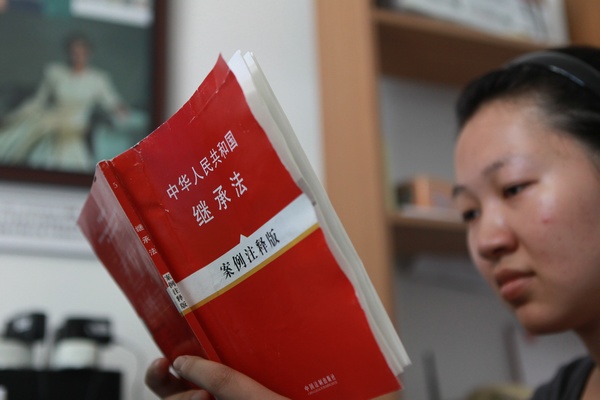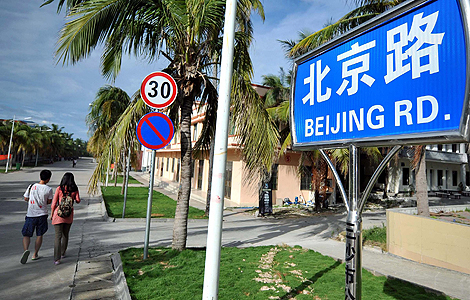Elderly willpower gets a boost
Updated: 2013-07-09 07:11
By Yang Yang (China Daily)
|
||||||||
Aging population
The nonprofit will bank, a six-month trial project that started on March 21, is the first of its kind in China. Although it provides free consultancy services to those aged 60 or older who need advice about making a will, the act of drawing up the document is left in the hands of legal professionals.
 |
|
An employee of the China Will Bank studies China's Law of Succession. |
Among the services on offer are video recording, collection of fingerprints and storage of the will. The NGO also provides indelible ink and non-degradable paper to ensure the documents remain in pristine condition and will be legible when eventually required.
The trial period is intended to identify problems with the concept and suggest an optimum operating procedure. When the six-month assessment period ends, the project will be extended to cities across China and will eventually become a nationwide service. The concept is badly needed, because the country's population is aging rapidly.
By the end of 2012, the number of people in China aged 60 and older was 194 million, 14.3 percent of the population, according to the National Bureau of Statistics, and it's estimated that in 20 years, the number will have doubled.
While many senior citizens have applauded the service, questions remain about the bank's nonprofit status and the feasibility of providing legally binding wills that won't provoke disputes.
"I think many people are mistaken about the function of the China Will Bank," said the chairman, Chen Kai. "Notaries are in charge of drawing up wills and lawyers are responsible for executing them, but the intermediate stage has been missing. We will store the wills and provide materials for the executors, but we are not attempting to usurp the roles played by notaries and lawyers."
Chen said that the will bank is about ensuring people's livelihoods. It receives assistance and financial support from the government and related organizations, such as the Beijing Federation of Industry and Commerce. When the pilot period ends, the bank will also raise funds directly from the public. "We will always be a nonprofit organization," said Chen.
However, because the will bank doesn't make or execute wills, the most common problems are likely to remain unresolved.
"The law relating to wills is very complex and contains many loopholes, which affects the entire legal procedure surrounding them and their execution," said Yang Xiaolin, a lawyer at Beijing Yuecheng Law Firm.
Tan Fang, a veteran lawyer based in Shanghai, is also one of 40 pro bono lawyers at the bank: "China's Law of Succession does not provide a legal basis for inheritance management and execution," she said.

 China's youngest city glistens under palm trees
China's youngest city glistens under palm trees
 Xinjiang tourism recovering
Xinjiang tourism recovering
 Quebec disaster death toll jumps to 13
Quebec disaster death toll jumps to 13
 Mourn for students in San Francisco air crash
Mourn for students in San Francisco air crash
 Rolling stone finally settles
Rolling stone finally settles
 Double-decker bus caught fire in Shanghai
Double-decker bus caught fire in Shanghai
 China, Russia begin live-fire navy drill
China, Russia begin live-fire navy drill
 Grape expectations for Xinjiang county
Grape expectations for Xinjiang county
Most Viewed
Editor's Picks

|

|

|

|

|

|
Today's Top News
Victims' families arrive in SF
Hopes are high for US, China talks
Laden's life on the run revealed
US mulls hastening withdrawal from Afghanistan
China's inflation grows 2.7% in June
Country singer Randy Travis in critical condition
Police look for suspects in Brazil soccer slaying
Nuclear power pricing system launched
US Weekly

|

|






